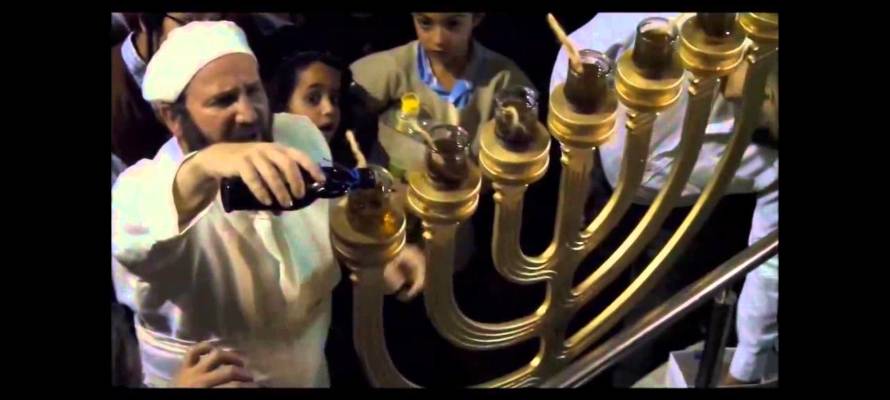Our sages point out an important lesson on education and parenting derived from the lighting of the Menorah.
By Rabbi Ari Enkin, Rabbinic Director, United with Israel
This week’s Torah portion is “Tetzaveh” (Exodus 27:20–30:10), and it focuses primarily on the manufacture of the clothes worn by the priests and High Priest when serving in the Mishkan (Tabernacle) and, later, in the Holy Temple.
The reading opens with some of the instructions on lighting the Menorah in the Mishkan. As it says: “And you shall command the Children of Israel to take clear olive oil, crushed specifically for lighting, to raise the light of the lamp.”
The Talmud infers from the words “to raise the light of the lamp” that, when the priest would light the Menorah (seven-branched candelabra used in the Mishkan and Holy Temple,) he was required to keep the fire upon the wick until the flame was completely lit and flickering. He would not remove his hand from lighting the flame until he was sure that the lamp had fully taken.
The sages explain an important lesson here on education and parenting. Each of the utensils of the Mishkan symbolized different facets of religious life. The Menorah, especially the lights of the Menorah, are symbolic of Torah and Torah study. As the Proverb says, “The Torah is light.”
We learn from the fact that the priest was required to ensure that the flame was fully self-sufficient before removing his hand that a teacher must not stop teaching and explaining until the student is like the flame that is self-sufficient and “burning” on its own. Whether it’s a teacher or a parent – one must never stop imparting, explaining and inspiring.
The Talmud tells the story of Rabbi Preida. One of his students needed the lessons to be repeated 400 times in order to understand the material properly. Once, when the student still didn’t understand, Rabbi Preida sat and taught him the lesson 400 times more – with love and patience. We are told that after this event, a Divine voice was heard saying that Rabbi Preida would be given long life and a very special place in the World to Come.
Most teachers feel that their students will always be their students and will learn from them forever. And, in many, cases, a teacher may enjoy this feeling. Our sages say, however, that the best teacher is the one who can finish his or her job, so to speak, so that the student will be able to manage independently – like the lamp that was lit in the Mishkan.
For more insights by Rabbi Enkin on this week’s Torah portion, click on the links below:
https://unitedwithisrael.org/living-torah-why-cant-we-wear-wool-and-linen/
https://unitedwithisrael.org/living-torah-building-an-inner-sanctuary/
